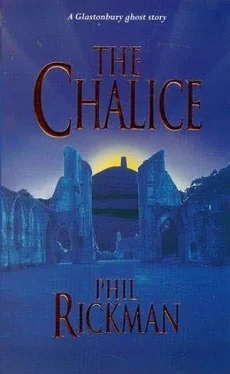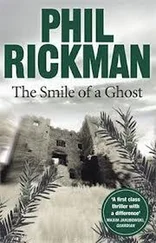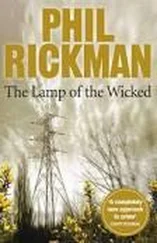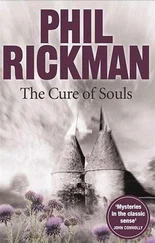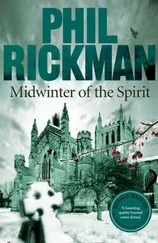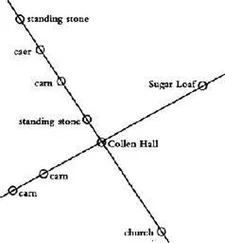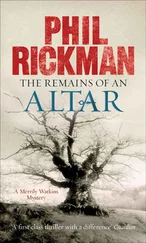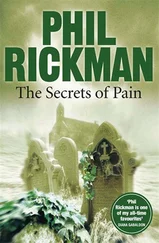Phil Rickman - The Chalice
Здесь есть возможность читать онлайн «Phil Rickman - The Chalice» весь текст электронной книги совершенно бесплатно (целиком полную версию без сокращений). В некоторых случаях можно слушать аудио, скачать через торрент в формате fb2 и присутствует краткое содержание. Жанр: Триллер, на английском языке. Описание произведения, (предисловие) а так же отзывы посетителей доступны на портале библиотеки ЛибКат.
- Название:The Chalice
- Автор:
- Жанр:
- Год:неизвестен
- ISBN:нет данных
- Рейтинг книги:5 / 5. Голосов: 1
-
Избранное:Добавить в избранное
- Отзывы:
-
Ваша оценка:
- 100
- 1
- 2
- 3
- 4
- 5
The Chalice: краткое содержание, описание и аннотация
Предлагаем к чтению аннотацию, описание, краткое содержание или предисловие (зависит от того, что написал сам автор книги «The Chalice»). Если вы не нашли необходимую информацию о книге — напишите в комментариях, мы постараемся отыскать её.
The Chalice — читать онлайн бесплатно полную книгу (весь текст) целиком
Ниже представлен текст книги, разбитый по страницам. Система сохранения места последней прочитанной страницы, позволяет с удобством читать онлайн бесплатно книгу «The Chalice», без необходимости каждый раз заново искать на чём Вы остановились. Поставьте закладку, и сможете в любой момент перейти на страницу, на которой закончили чтение.
Интервал:
Закладка:
'Yes, just a minute, Jim.'
Juanita had found another story. Or at least a headline. Or, more precisely, the first word of a headline. It made the hubbub around her recede into mush. The word was 'swastika'.
'I think', Jim was saying from, it sounded like, a long way away, 'that this must be the time for you to think seriously about that scheme of yours for relaunching The Avalonian. I can sense dirty work afoot and somebody ought to be saying it. We have to preserve the buggering mystery.'
'I don't know.' Juanita, who had glanced through the swastika story, was sure she'd gone pale, just hoped it wouldn't show under the muted pub lights, I don't know about that anymore.'
FOUR
'Essentially,' Dr Pel Grainger said, 'we are talking readjustment. Reprogramming the organism to self-regulate photo-sensory input. We're talking…'
Dr Grainger moved to the very front of the platform, a portly figure all in black. He breathed in through his nose, abdomen swelling. Then he exhaled languidly and noisily from his mouth, flung his arms wide… and all the lights died at once, as if he'd blown them out.
'Penumbratisation,' he said.
Although it was obviously staged, there was an intake of breath from the audience. Verity jumped in her seat before realising, after a fraught second, that this was not Meadwell, but the Assembly Rooms, the alternative Town Hall, centre for esoteric lectures, meeting place for all who sought, in Glastonbury, a new level of Being. At the Assembly Rooms one expected – even hoped for – the unexpected.
'Marvellous,' said Dame Wanda Carlisle. 'Bravo.' But her voice, normally warm and perfectly pitched, sounded strident and intrusive. Nobody else had spoken.
The now invisible Dr Grainger waited for total silence before continuing.
'If you think that was a shock, my friends, it's nothing compared to the sense of dislocation I guarantee you will feel when we put on the lights again at the end of the session. For those who haven't figured it out yet, penumbratisation means permitting our consciousness to merge with the shadows. It is the preliminary to bonding with the dark. Lesson one: learn to penumbratise.'
So far, Verity had not been terribly impressed with Dr Pel Grainger (the Pel apparently short for Pelham) not least because of his somewhat theatrical appearance. In his long, black jacket, he resembled the magicians she remembered from children's parties before the War. He had a trim, black beard which contrasted so dramatically with his puny, pale face that it must surely be dyed.
With the lights extinguished, however, Dr Grainger was in his clement, his voice as rich as black coffee, the voice of a hypnotist or one of those evangelical American clergymen. It soothed. It was, Verity thought, a rather dangerous voice.
'You may think that you cannot see me. But the Tenebral Law says you can see me clearer than ever now, without the interference of light. Light itself is random, haphazard, volatile. Artificial light is an interference.'
He paused. The little hall was packed, but nobody shuffled or coughed the way they had when the lights were on.
'Only darkness,' intoned the voice of Dr Pel Grainger, 'can connect with our inner being. In tenebral therapy, we learn to locate what I will call the inner dark. The darkness inside ourselves… about which there are a number of ancient misconceptions.'
Verity tensed.
'People say to me, "but darkness… surely we fear the dark because darkness is the oldest metaphor for evil "'
Verity flinched.
'This,' softly now, 'brings us to the oldest misconception of them all. One so endemic in our society that the modern world seeks to cancel the dark. Throughout history, societies have run towards the light because the light is easy. It makes no demands upon us. See, what you have nowadays, people go for south-facing houses, right? They go for plate-glass walls, French-doors, conservatories – they got to open everything to as much light as they can get. Because light makes no demands.'
Verity felt people around her nodding agreement.
'OK, let's deal with evil. The word "evil" is a terse, blanket condemnation of anything it does not suit us to understand. We know that it is essential for the development of the soul to undergo periods of hardship and so-called negativity. We talk of the soul travelling out of the darkness and into the light. Therefore, the darkness must be "evil". To that I say… bullshit!'
Verity thought of what she'd said to Major Shepherd about the presence of Abbot Whiting exuding evil. Because the lights had gone out? Was that really all it was?
'Let us consider darkness,' said Dr Grainger, 'as a sentient being. As something sensitive and vulnerable. In the States, our cities are so damn bright at night now, you can no longer see the stars. Plus we have high-powered security lamps on our houses, we blast through the night with our headlamps. Instead of melding with the dark, we brutalise it.'
As he said this, he snapped his fingers and the house lights came on for a blazing instant before going out again, and Grainger shouted, 'What do you see? Tell me what you see now. Come on, tell me what you see!'
'Big yellow spots,' a man called out.
'Alarming purple circular things,' described Dame Wanda, 'with a sort of spongy core.'
'OK, OK,' Pel Grainger said. 'You've all seen them before, just you didn't know what you were seeing. Well now, I'm gonna tell you. What happened was we blasted the dark with brutal, artificial light, and what you saw, maybe are still seeing are the bruises. Now, you want me to do that again, you want me to hit the darkness one more time?'
'No way, man.' someone behind Verity said nervously, as if Dr Grainger had threatened to hit a child.
'Any of you? Anybody want the light back? Anybody feel happier with a little illumination around here?'
Silence.
'Good,' said Dr Pel Grainger. 'I congratulate you all. You have reached what I term First stage Tenebral Symbiosis. Now we can begin.
Verity sat with her fingers linked on her knees and felt some trepidation.
When I awoke in my room at the George and Pilgrims, sunlight had turned the stained glass in my window into a nest of gems and I felt at once a different person. It was the first time since before the War that I had slept the night through and awoken after sunrise. Or, if it was not the first time, then it certainly felt like it. This was my rebirth. That morning I walked through the Abbey ruins, at first appalled at what little remained and then overcome with a sudden humility and a desire… to worship.
This was something I had never before experienced; indeed I realised then that I had never really understood the meaning of 'worship'. Before I knew it, I had fallen to my knees, something I had not been able to do since leaving hospital, without the most excruciating pain. This time I felt no pain at all, only a growing sense of wonder. I do not know how long I knelt there in the wet winter grass, gazing up through the noble arch of the Western Doorway, Even today it is still possible, in Glastonbury, to kneel alone and undisturbed in a wide open public place, although I should not care to predict how long this state of affairs will remain before the worshipper is derided or even attacked and robbed. But it seemed to me then, and sometimesstill does, that these serene ruins enclose a level of holiness unexperienced in most of our great surviving cathedrals. And something else: a sadness, which I perceived then as sweet melancholy but now, it pains me to record, seems closer to a bitter despair. But I was full of an extraordinary optimism as, later that morning, I made my way to the Chalice Well, where the Blood Spring flows and the Arimathean was said to have laid down the Grail. There to meet my Teacher and another person: the highly controversial writer and mystic Mr John Cowper Powys.
Читать дальшеИнтервал:
Закладка:
Похожие книги на «The Chalice»
Представляем Вашему вниманию похожие книги на «The Chalice» списком для выбора. Мы отобрали схожую по названию и смыслу литературу в надежде предоставить читателям больше вариантов отыскать новые, интересные, ещё непрочитанные произведения.
Обсуждение, отзывы о книге «The Chalice» и просто собственные мнения читателей. Оставьте ваши комментарии, напишите, что Вы думаете о произведении, его смысле или главных героях. Укажите что конкретно понравилось, а что нет, и почему Вы так считаете.
